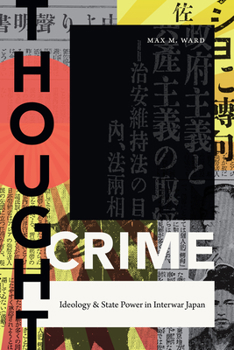Thought Crime: Ideology and State Power in Interwar Japan
Select Format
Select Condition 
Book Overview
In Thought Crime Max M. Ward explores the Japanese state's efforts to suppress political radicalism in the 1920s and 1930s. Ward traces the evolution of an antiradical law called the Peace Preservation Law, from its initial application to suppress communism and anticolonial nationalism-what authorities deemed thought crime-to its expansion into an elaborate system to reform and ideologically convert thousands of thought criminals throughout the Japanese Empire. To enforce the law, the government enlisted a number of nonstate actors, who included monks, family members, and community leaders. Throughout, Ward illuminates the complex processes through which the law articulated imperial ideology and how this ideology was transformed and disseminated through the law's application over its twenty-year history. In so doing, he shows how the Peace Preservation Law provides a window into understanding how modern states develop ideological apparatuses to subject their respective populations.
Format:Paperback
Language:English
ISBN:1478001658
ISBN13:9781478001652
Release Date:March 2019
Publisher:Duke University Press
Length:312 Pages
Weight:0.90 lbs.
Dimensions:0.7" x 6.0" x 8.9"
Customer Reviews
0 rating





